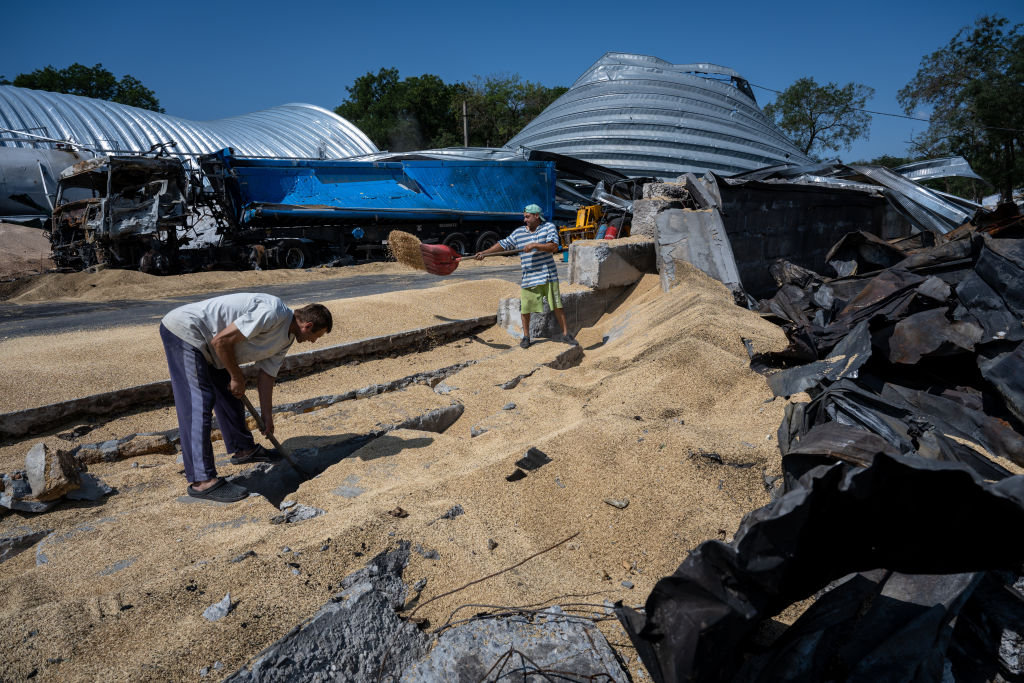ADF STAFF
Dark clouds of fear gathered in Somalia’s capital, Mogadishu, after Russia’s recent decision to end its Black Sea grain deal. Bakers, traders and hungry customers prepared for another surge of pain as Russia’s war on Ukraine continues to affect Africa.
Halima Hussein, a mother of five who lives in a crowded Mogadishu camp for displaced people, was among those worried about shortages.
“I don’t know how we will survive,” she told Reuters. “Aid agencies try their best to sustain our lives. They have very little to give.”
Wheat prices that had doubled in 2022 when Russia invaded Ukraine fell by a quarter after the grain deal was signed. But some traders in Mogadishu estimated that a 50-kilogram bag of wheat could rise from the current $20 to nearly $30.
Russia’s decision on July 17 to tear up the grain deal and its subsequent airstrikes on Ukrainian wheat depots have drawn international condemnation.
Ukrainian President Volodymyr Zelensky charged Russian President Vladimir Putin with trying to “weaponize hunger.”
African leaders pushed back against Putin more forcefully than ever before.
“The decision by Russia to exit the Black Sea Grain Initiative is a stab in the back at global food security prices and disproportionately impacts countries in the Horn of Africa already impacted by drought,” Abraham Korir Sing’Oei, a senior foreign ministry official from Kenya, tweeted on July 17.
African Union Commission Chairman Moussa Faki Mahamat similarly expressed his displeasure but did so directly to Putin with African leaders on hand during his closing address to the Russia-Africa summit in St. Petersburg, Russia.
“The disruptions of energy and grain supplies must end immediately,” Mahamat said on July 28. “The grain deal must be extended for the benefit of all the peoples of the world, Africans in particular.”
Egyptian President Abdel Fattah al-Sisi, whose country is a big buyer of Black Sea grain shipments, also urged Russia to reverse course, telling the summit it was “essential to reach agreement” on reviving the deal.
Brokered by the United Nations and Turkey in July 2022, the Black Sea grain deal helped bring down global food prices and allowed humanitarian organizations to access hundreds of thousands of metric tons of food at a time of rising hunger, drought and scarce funding.
The deal allowed Ukraine to ship 32.9 million metric tons of grain and other food around the world. Official data showed that 57% of the Ukrainian grain went to developing nations — until Russia pulled the plug.
Putin responded, as he has in the past, by blaming other countries. He promised to deliver up to 300,000 metric tons of free Russian grain among the six African countries with which he has military deals.
U.N. Secretary-General António Guterres dismissed the gesture and reiterated his demand that Russia renew the deal.
“It’s not with a handful of donations to some countries that we correct this dramatic impact that affects everybody, everywhere,” he said during a July 26 news conference. “The increase of prices will be paid by everybody everywhere and namely by developing countries and by the vulnerable people in middle income and even developed countries.”
Sing’Oei said food prices that are already at historic highs would rise further in Kenya, which also has been contending with the Horn of Africa’s worst drought in decades.
“Commodities that used to cost say a pound or two will now cost four,” he told Reuters. “The prices will just double.”
Since exiting the agreement, Russia has compounded the problem by consistently targeting Ukrainian port facilities and grain terminals with near-daily drone and aerial attacks.
The global price of wheat has risen by 9%.
Analysts such as Harry Broadman, a former senior World Bank official in Russia and Africa, have questioned Putin’s thinking.
“Moscow must know its abrupt halt in permitting Ukrainian grain export shipments via the Black Sea will cause further increases in grain import prices, thus hurting some of the poorest countries in the world,” he told The Africa Report magazine.
“It’s hard to fully understand Russian President Vladimir Putin’s benefit-cost assessment of pursuing this strategy, given his desire to expand Russian influence on the continent.”

